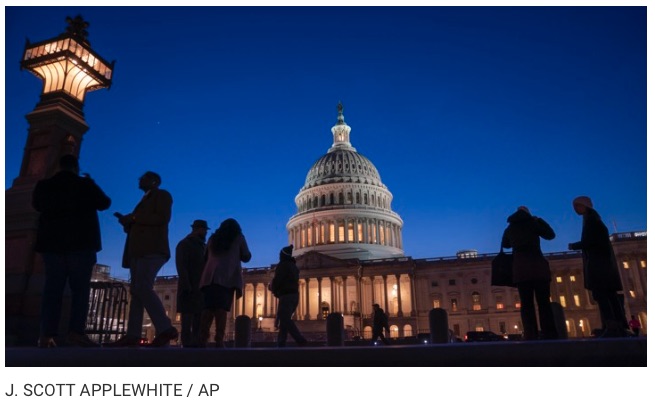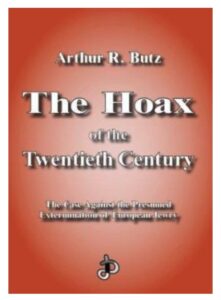Almost the minute after the White House released its 110-page brief for the Senate impeachment trial, careful observers noticed a contradiction between the White House counsel’s view and Attorney General William Barr’s. The White House brief argues that there can be no impeachable “abuse of power” without a violation of established law. Meanwhile, in a memorandum to senior Justice Department lawyers written while he was still a private citizen in 2018, Barr argued that abuse of power can indeed be impeachable even if there is no crime.
As a purely legal matter, the position of the White House counsel, Pat Cipollone, is incorrect. But that doesn’t help the Democrats in this case, and should perhaps worry them in the long run.
First, let’s take a look at Cipollone’s unforced error. (I worked at the White House from 2017 to 2019 as the Council on Environmental Quality’s associate director for regulatory reform.) The memorandum claims that “by limiting impeachment to cases of ‘Treason, Bribery, or other high Crimes and Misdemeanors,’ the Framers restricted impeachment to specific offenses against ‘already known and established law.’”
The memo goes on to note that at the Constitutional Convention, James Madison opposed “maladministration” as grounds for impeachment because that would be equivalent to tenure at the pleasure of the Senate, subjecting the president to something akin to a parliamentary vote of no-confidence. That, the memo insists, “would cripple the independent Executive the Framers had crafted and recreate the Parliamentary system they had expressly rejected.”
In fact, the Senate trial is not meaningfully different from a parliamentary vote of no-confidence. That inheres in the very procedure the Constitution lays down for impeachment. Ultimately, “Treason, Bribery, or other high Crimes and Misdemeanors” means whatever the Senate thinks it means in a particular case, and its judgment is final and cannot be appealed to any court of law. Because it is not justiciable, the standard for impeachment is simply not a legal standard. Impeachment is by nature political.
And yet this has not crippled the presidency in the least. That is because the requirement of a two-thirds majority in the Senate means that the president can be removed only if opinion has turned overwhelmingly against him, which in most situations would mean that his own party has largely abandoned him. Indeed, it was through the requirement of a supermajority, rather than a refined legal standard, that Madison’s concern about impeachment turning on policy disagreements was effectively addressed.Barr has the better view. In his 2018 memo, he wrote:
Thus, under the Framers’ plan, the determination whether the President is making decisions based on “improper” motives or whether he is “faithfully” discharging his responsibilities is left to the People, through the election process, and the Congress, through the Impeachment process … The fact that [the] President is answerable for any abuses of discretion and is ultimately subject to the judgment of Congress through the impeachment process means that the President is not the judge in his own cause.
The purpose of Barr’s memo was to warn the senior leadership of the Justice Department that Special Counsel Robert Mueller might be pursuing an “obstruction of justice” theory that would criminalize facially lawful acts of the president just because of Mueller’s suspicion that the president may have had improper motives. (Mueller ultimately backed away from that theory). The place to deal with abuses of power that depend on public judgment, Barr wrote, is the impeachment process—not internal Justice Department investigations.
This is eminently sensible. It could be that a president commits no crime, but his abuse of constitutional obligations proves so appalling that his own party as well as the opposition turns against him. Impeachment is the right resort in such a case.
Democrats seized on Barr’s 2018 memo to dispute the White House’s contention that abuse of power doesn’t require a legal violation. But even if they are correct on the legal point, it doesn’t help them. That’s because from the start, the Democrats based their entire case for impeachment on the claim that the president had engaged in corrupt acts and they could prove it. Impeachment may not require a crime, but they decided to focus on one anyway: bribery in Trump’s dealings with Ukraine.
But then the Democrats apparently gave up on bribery, and fell back on a vague abuse-of-power charge based on the same facts that they were implicitly admitting were not sufficient to prove the crime originally alleged. That’s why it doesn’t help the impeachers to establish that abuse of power doesn’t a priori require evidence of an actual crime. They have arrived in the Senate with an abuse-of-power theory that in this particular case does require evidence of a crime to be at all convincing, simply because that’s how they set it up from the start.
There are those who will say, “Well, Republicans are just as corrupt as the president and wouldn’t convict him for any reason.” Perhaps. But Richard Nixon commanded more loyalty among Republican senators than Trump does, and they abandoned him in the end. Are today’s Republicans simply weaker than those of Nixon’s time—or is it the case against Trump that is weaker? The answer should be obvious: Nixon would have traded his impeachment for Trump’s in a heartbeat.
The impeachers must know by now that their chances of removing Trump are exactly zero, but some good may yet come out of these proceedings. The elevation of abuse of power to an impeachable offense puts this and future presidents on notice that if they fail to live up to standards that Americans broadly expect of their leaders [Editor’s note: more precisely the preferences of the party holding a majority in the House], they may be impeached even if they commit no crime—indeed, even if they believe they did nothing wrong.
Suppose a president suspends some statutory tax obligation, such as the capital-gains tax, by ordering executive-branch employees to stop collecting it. Or suppose a president rewrites some law by refusing to enforce large parts of it, and then brags, “I changed the law.” Suppose a president discovers that by the prospective use of prosecutorial discretion, laws already in effect can be summarily suspended or altered at will.
Many Republicans may wish they had known years ago that such conduct could be an impeachable “abuse of power.” At least they know it now.
Mario Loyola is Senior fellow at the Competitive Enterprise Institute. This story is part of the project “The Battle for the Constitution,” in partnership with the National Constitution Center




I was doing OK with this article…especially when it concluded that impeachment is not a legal event, but a POLITICAL EVENT. Things stared to make sense. So, basically, it’s a vote of no confidence…but of course, in the case of THIS impeachment, there will just not be enough votes to pull that off.
WHY they define impeachment in terms of high crimes and misdemeanors seems to be strictly for public consumption. In reality, if there are enough votes from all sides, they could impeach for any reason upon which the super majority agreed.
Am I wrong?
Regardless, the one statement from Mario Loyola that gives me some pause is:
The elevation of abuse of power to an impeachable offense puts this and future presidents on notice that if they fail TO LIVE UP TO THE STANDARD THAT AMERICANS BROADLY EXPECT OF THEIR LEADERS they may be impeached even if they commit no crime—indeed, even if they believe they did nothing wrong.
I do not see where We the People have a thing to do with our leaders not living up to our standards….impeachment now seems to be a purely political event that has zip to do with our wishes. I mean, when’s the last time our reps gave a damn what we wanted….?
The circus continues….anyone interested, here’s a live feed of the defense going on now:
https://www.zerohedge.com/political/watch-live-trumps-lawyers-begin-defense-against-impeachment
Astute observations, Will. What he is saying is that the charge of Abuse of Power is so nebulous that it opens a Pandora’s Box for future presidents–and where the appeal to “the standard that Americans broadly expect of their leaders” is subterfuge for what the majority party in the House wants the president to pursue as POLICIES. You are spot on and, as you will learn today (I have no doubt), the Founding Fathers warned against precisely such an abuse of the power to impeach. More to come today.
Every single previous President could be accused of ”Abuse of Power”….especially Obama.
The FACT of just being a President is the use of Power.
The heck with executive abuse of power…..the entire damn Democratic party should be up on charges of abuse of power.
They have done everything possible…short of assassination….to thwart all of Trump’s efforts.
I have added an Editor’s note to this article:
The impeachers must know by now that their chances of removing Trump are exactly zero, but some good may yet come out of these proceedings. The elevation of abuse of power to an impeachable offense puts this and future presidents on notice that if they fail to live up to standards that Americans broadly expect of their leaders [Editor’s note: more precisely the preferences of the party holding a majority in the House], they may be impeached even if they commit no crime—indeed, even if they believe they did nothing wrong.
Thank you for that addition. It’s important for all to realize this is not an effort of We the People….it’s political theater that should have stopped when the election was over….for THE GOOD OF THIS NATION.